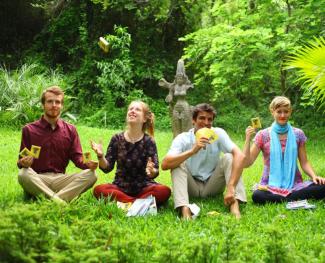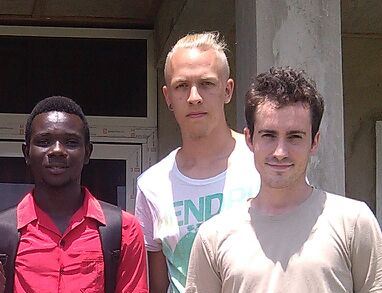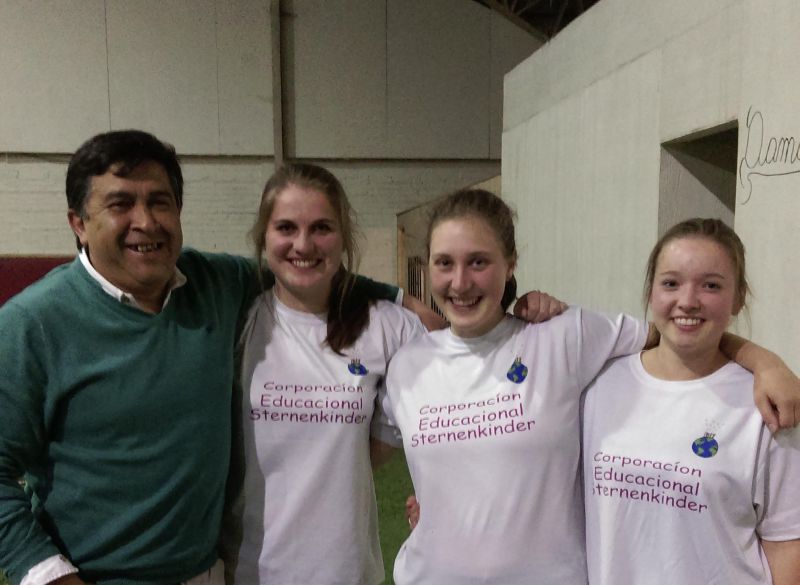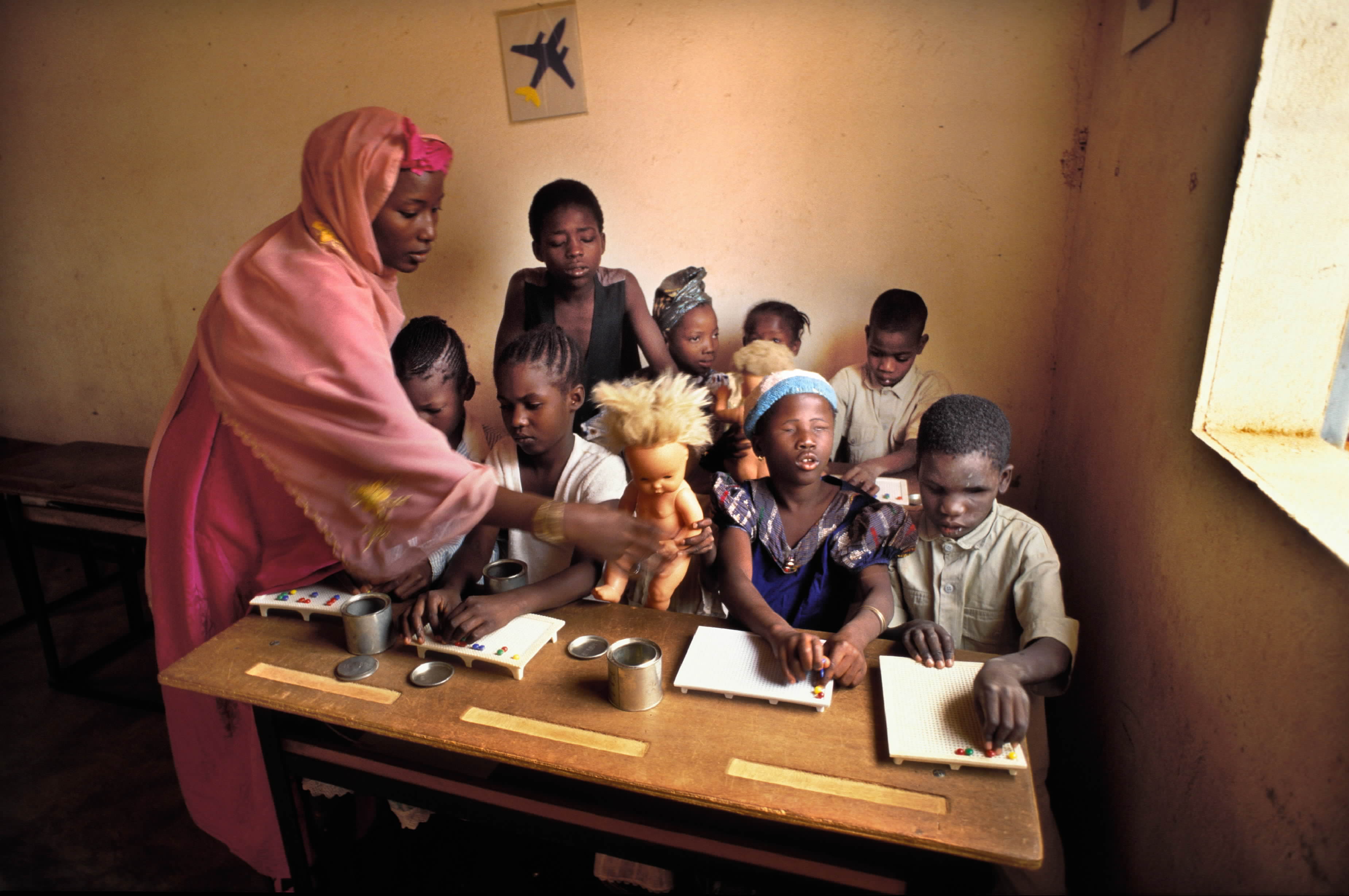weltwärts volunteers
WasteLess teaches children to waste less

How did you personally get involved in fighting waste?
Chandrah: Doing development work in coastal rural communities after the Asian Tsunami in late 2004, I realised that waste was a growing problem. The absence of proper waste collection and disposal systems was causing pollution in the villages and putting human health at risk.
Ribhu: I left my corporate job in early 2008 and did a one-year trip around the world with my wife. In all the countries we visited we experienced the negative consequences of consumerism, including inappropriate ways of waste disposal methods. I wanted to do something good, so when I came back to Auroville, I helped Chandrah organise what we called the “Litter free Auroville” campaign. It got such a positive feedback that we wanted to do more. Instead of repeatedly organising individual campaigns and clean-ups, we wanted to create something lasting that could be used over and over again, for example to teach children in schools. We actually designed a curriculum that we called “Garbology 101”.
What else does WasteLess do?
Ribhu: We believe that learning should be fun, which is why we focus on creating educational materials and games. We want to reach as many young minds as possible, inspiring them to reduce and recycle waste as best they can.
Why do you target children?
Chandrah: Kids are the future. They will inherit the mess we are making today, for example by disposing of waste in open dumps, landfills and incineration. Children have a positive outlook on life and are more open to change than adults. Especially the age group six to 14 years is willing and able to change their behaviour much faster than adults. Moreover, they have a positive influence on their parents and peers. When we talk to adults, they often come up with why change is difficult or even impossible. Children do not use excuses like “it’s not my problem” or “I don’t know what to do”. They are keen on real solutions.
Ribhu: Even though the world of waste is pretty depressing – full of dumps, dirt and disgusting stuff – children see possibilities. They have a positive attitude and want to learn, so working with them has a good impact. For us personally, it is really inspiring. It gives us the energy and enthusiasm to continue our lifelong fight against garbage.
What is the difference between WasteLess and other organisations fighting trash?
Ribhu: To explain our approach, we like to compare the global waste challenge to a leaking tap. Imagine for a moment that you come home to discover a running tap has flooded your home. What do you do first? Start mopping up the water or close the tap? Most of us would close the tap before we get out the mop. But as a global community, our solutions to the challenges with waste are more bins, regular clean ups, bigger landfills and incinerators, and better technology. All of this is really what I’d call “mopping”. And collectively, we conveniently ignore our consumption which is the leaking tap. If we want to solve waste problems in a sustainable manner, we need to do both:
- close the tap in the sense consciously consuming and reducing waste and
- become better at mopping in the sense of recycling and composting.
We follow a 50-50 strategy. We teach children to close the tap and mop better.
What makes Auroville a good place for an educational NGO like WasteLess?
Chandrah: The educational system in Auroville is very diverse and allows for a lot of experimental freedom. Different educational approaches are taken; there are motivated teachers from all over the world. Auroville is a small town with an extraordinary international population. This is a great place for innovative and creative ideas. Furthermore, Auroville is associated with quality and aesthetics, values that guide our work.
What has been your greatest success so far?
Ribhu: When we started WasteLess we dreamed of creating materials for schools in and around Auroville, and now the materials are being used all over India and even internationally, for instance in Luxemburg, Portugal, South Africa, Argentina and Australia.
Chandrah: We have succeeded in creating materials that convey the big picture – from resource extraction and industrial production to consumerism, disposal and recycling. Moreover, students adopt better habits, and spread them. For example, class 5 students in Chennai played one of our games and learned about resin codes that help to identify safe plastic. They started to check resin codes everywhere. They quickly found out that most of their lunch boxes were made from toxic PVC and immediately demanded to switch to safer polypropylene or, even better, stainless steel. Their feedback inspired us to create a new game we call kNOw PLASTICS and we hope it will have an even greater impact on many more young minds.
How do you finance your work?
Chandrah: To fund our projects we mainly rely on grants and donations. As a non-profit social enterprise, we focus on impact rather than maximum revenues. We do charge the private schools we work with, however, and that income helps us to support low-income schools.
Is there any opposition to your work?
Ribhu: Dealing with waste is like swimming upstream in a fast flowing river. Modern society tells us that, to be good citizens, we must buy more new stuff. Our message of reducing consumption and buying more responsibly does not match the current global culture of consumerism. It is not seen as cool or attractive. Even in environmental discussions, waste is the last thing people are interested in. Water and energy seem more important.
What opportunities do you see in employing volunteers?
Ribhu: Volunteers can offer a fresh outlook. Working on waste issues for years, one’s mind tends to get a bit stuck. But just because we have a lot of experience does not necessarily mean we always have the right answers. Young volunteers come up with innovative and different answers. They do valuable work, helping us to reach more children and schools.
Are there differences between weltwärts volunteers and other volunteers working for WasteLess?
Chandrah: weltwärts volunteers are relatively young, between 18 – 25 years of age, and often come fresh out of school. Therefore, they are closer to our target group. What makes weltwärts volunteers really valuable is their commitment to work for one whole year. The long timespan allows them to assume a sense of leadership and carry out projects of their own, rather than only contributing small parts. Short-term volunteers, in contrast, often require a lot of time and attention at first, and then tend to leave by the time they have become really helpful.
What is your wish for the future?
Ribhu: We would like the government to take our materials and use them in schools, so all students learn about waste. Right now, as a small organisation, we don’t have the scale to reach as many students as we would like to. This autumn we will start a crowd funding campaign to spread our ‘Pick it Up Educational Programme’ to 5,000 students across India.
Ribhu Vohra and Chandrah Nusselein are the founders of WasteLess, an NGO in southern India.
wasteless@auroville.org.in
http://wastelessindia.org
Darius Meissner and Kaya Schloessler are two young Germans who spent one year volunteering with WasteLess. They were seconded by the German NGO Auroville International Deutschland in the context of the weltwärts programme, which is supported by Engagement Global on behalf of Germany’s Federal Ministry for Economic Cooperation and Development.










